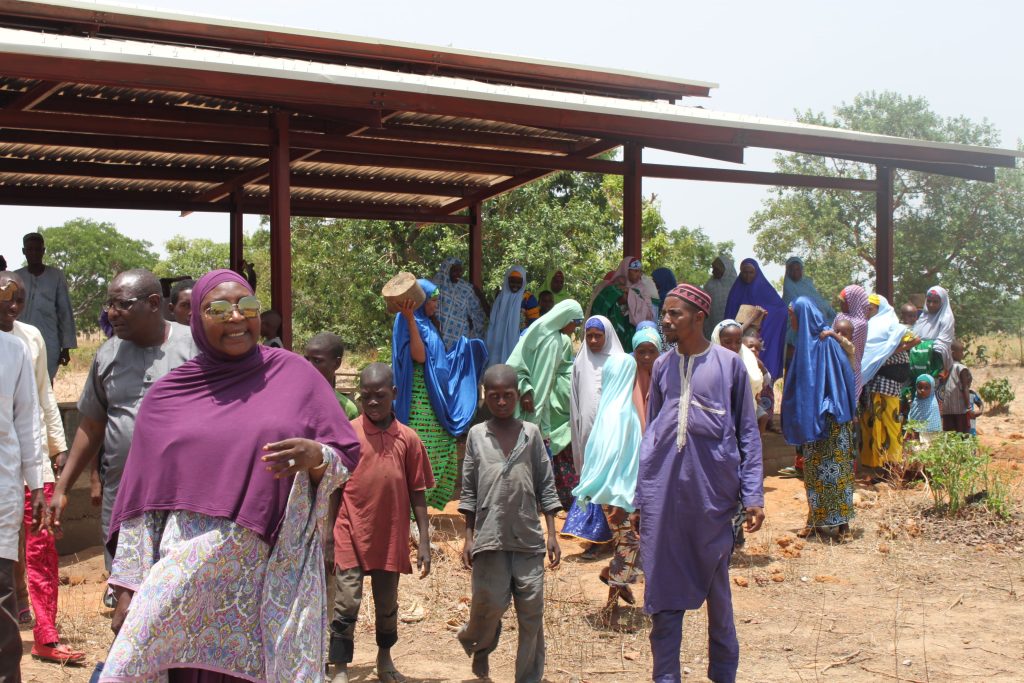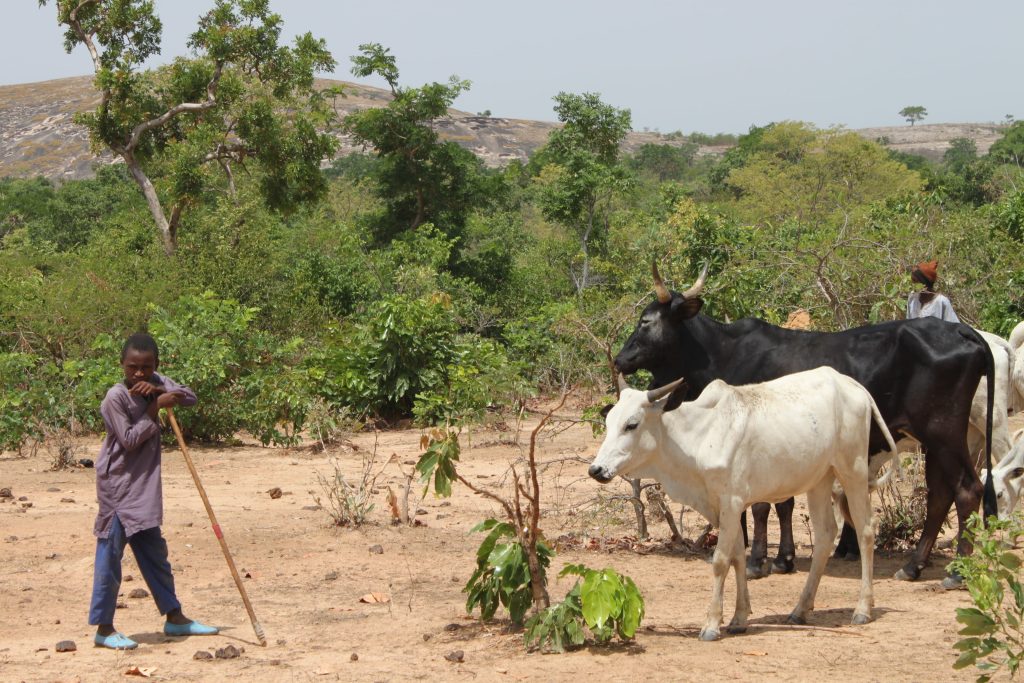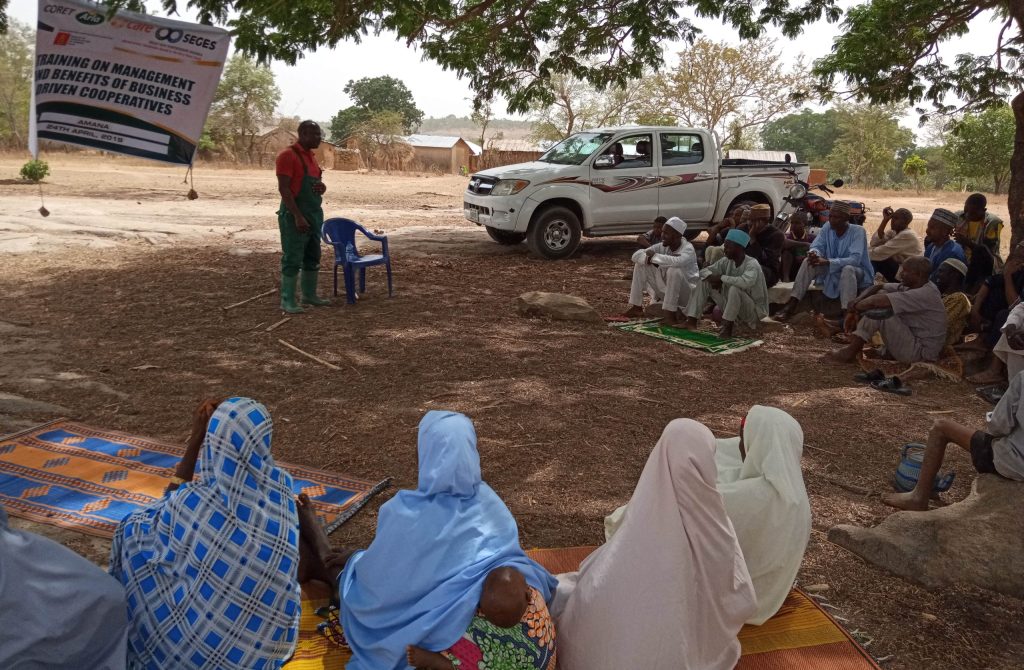Milky Way Partnership Nigeria – market driven sustainable growth in the dairy value chain
Nigeria’s dairy sector face numerous challenges, including low milk productivity, economic difficulties, and the need for sustainable practices. The MilkyWay Partnership was a collaboration between Arla, SEGES Innovation, the Milk Value Chain Foundation (MVCF), the Danish Agriculture and Food Council (DAFC), CARE, and CORET aimed at addressing these issues by increasing milk production among local farmers and supporting job creation and sustainable growth.
The primary objectives were to boost milk yield and quality, strengthen the dairy value chain, create job opportunities, and promote responsible business conduct aligned with global standards.
Despite challenges like COVID-19 and local insecurity, the project significantly improved milk production and household income for pastoralist dairy farmers. It developed a long-term strategy to ensure a consistent supply of quality milk from smallholder dairy farmers, the Damau Household Milk Farm, and the Arla Farm.
The MilkyWay Partnership achieved several significant milestones. Extensive training provided to pastoralist dairy farmers increased their skills and motivated them to become more business-oriented producers, leading to a significant rise in daily milk production and household income. The Dairy Value Chain Forum facilitated critical dialogue, enhancing sector collaboration and achieving concrete advocacy results.
The project influenced Kaduna State to develop the Damau Household Milk Farm with 1000 dairy farmers and the Arla Farm as showcases for sustainable milk production. A landmark decision within Arla’s Sustainability Strategy was the investment in its first farm outside Europe—the Arla Farm in Damau—demonstrating Arla’s commitment to global dairy farming standards. Advocacy activities and stakeholder interactions in the Dairy Value Chain Forum promoted better framework conditions, improved sector coordination, infrastructural investments, and market linkages.
A study in June 2023 revealed that women, who once faced harsh market conditions, no longer had to hawk their milk, freeing up time for other productive activities such as soap making, sewing, and food production. This led to a shift in societal norms, with women gaining more visibility in public forums. The project also instigated a desire for education among the Fulani community, with parents wanting their children to attend school despite the distance. Additionally, the development and circulation of an extension guide for new farmers underscored the project’s commitment to education and scaling efforts.
The sustainability of the project’s ideas and achievements was ensured through several initiatives. Memorandums of Understanding were signed with key collaborators, including Kaduna state MDAs, NGOs, and private sector players in the dairy industry, ensuring sustained promotion of both development and commercial activities. The launching of the ambitious Damau Household Milk Farm in collaboration with Arla represented an upscaling of project activities. The Arla Farm not only serves as a model dairy farm but also provides a constant milk supply to the dairy plant and high-quality heifers for modern dairy start-up farms in Nigeria. Dairy clusters have built capacity and adopted better dairy farming practices, producing higher quality milk and cattle feed. Responsible Business Conduct guidelines ensured sustainability of the dairy value chain business component. The participatory approach, involving cluster representatives and empowering women, prepared communities for ownership of the process.
Milk intake from existing clusters, along with planned expansion by the Damau Household Project, is expected to further increase income and job opportunities among farmers and employees in the dairy sector. The business model based on three milk supply pillars supported all major development and commercial aspects of the MilkyWay Partnership. The Kaduna Dairy Plant adhere to good quality standards with the capacity to process more milk as supply increased. Significant developmental activities at the Damau Household Milk Farm, such as construction of access roads and farm infrastructure, created jobs and improved living conditions.
Collaboration between Arla, The Milk Value Chain Foundation, CORET, DAFC, and SEGES Innovation is continuing under the “Partnership for Green and Productive Dairy in Nigeria (PGPD).” This project aims to develop a climate-resilient, sustainable, and productive dairy value chain, contributing to economic growth, job creation, and improved livelihoods—aligned with Nigerian and Danish strategic priorities. Milk supply is expected to grow to 30 tons per day, resulting in profitable businesses for actors engaged in the green supply chain from cow to consumer.
Administrative Partner Danish Agriculture and Food Council, SEGES Key Commercial Partner Arla Other Partners Arla SSA, CARE Denmark, CORET (Confederation of Traditional Stock Breeders Organisations), Milk Value Chain Foundation Country Nigeria Sector Agriculture & agro-processing Open / Closed Closed Duration July 2017 - July 2023 Approval Year 2016





